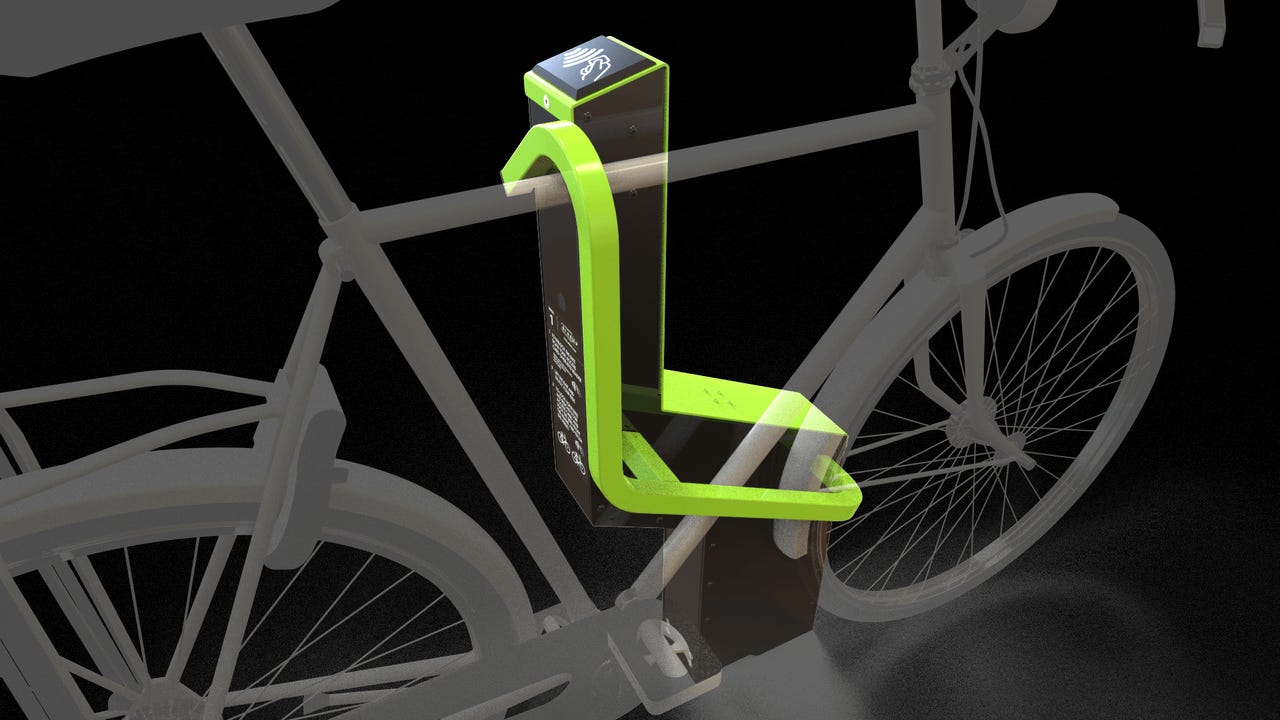Bike thieves beware: This startup is using smart tech to reinvent cycle parking


Bikeep's racks can be unlocked with a mobile app, phone call or an RFID access card.
In 2013, a team of Estonian students and young entrepreneurs took part in the country's largest entrepreneurship-competition, called Brainhunt, with an idea to build a smart commercial rack for safe bicycle parking.
They reached the final and were voted the public's favorite. Soon, an initial test station was set up in the capital, Tallinn.
Four years later, the company they created, Bikeep, has installed over a thousand smart bike racks in Estonia, Ukraine, Hungary, Belarus, and most recently in the US. Bikeep has offices in Tallinn and from the last October also in San Francisco, where it expects to see the biggest growth in the near future.
"We chose San Francisco mostly because of the local culture. People are very open to innovation and businesses have understood the long-term value of employees and customers," Bikeep CEO Kristjan Lind tells ZDNet.
"Businesses are motivated to provide extra perks and wow effects for [staff and clients], and at the same time it's a contribution towards a better environment for everybody as well."
Bikeep's bicycle racks are built in Estonia, using patented technology. The hardware itself is quite simple. It consists of a galvanized steel bar that locks the bike through the frame and the front wheel, so it's possible to secure any bicycle with a typical structure through which the bar can pass.
Each bike rack is equipped with a loudspeaker alarm and is also connected to the internet, which can provide its operator a live overview of its usage.
The intelligence in Bikeep consists of the way the racks can be unlocked with a mobile app, phone call or an RFID access card to make it easier for businesses and municipalities to restrict the use of the bike racks to certain individuals.
An example of this kind approach is a recently installed solar-powered bicycle parking station in the front of San Francisco sport club Fitness SF. The members can lock and unlock their bicycles with the same bar codes they use to access the club.
Lind says in the five countries where the company has installed its stations, no bicycles have so far been stolen from the racks.
"In San Francisco I've heard a lot of scary stories about very highly motivated bicycle thieves. They are even using vans to pull the more traditional racks off the ground to get access to the bicycles attached," he says.
Lind believes Bikeep's system should survive this kind of attack, as any violent attempt to break it will cause the loud alarm to go off with a signal also sent to the local security company as well. As another safety feature, all Bikeep's stations are equipped with a surveillance camera.
According to Lind, its biggest rivals are the bike-share companies, although their target group is slightly different.
"Bike-share products are mostly made for people who don't own their own bicycle, whereas our system provides security for people using their personal bicycle for everyday rides," he says.
The cost of maintaining Bikeep racks is lot lower than maintaining the bike-share services, Lind argues.
"Also, it's more convenient for the user, whose journey starts and ends at his or her front door, whereas with bike-share one has to go to the closest bike-share station first to get a bicycle and then get back home after returning it."
The next goal for the company is to attract further investments this summer to expand the business to other bigger markets.
"We've just started our business in the first big bicycle-friendly market and the potential to grow there is enormous. At the same time we have a lot of untapped markets for which we already have a perfect product," Lind says.
The company is also testing some innovations. For example, some of the stations run on solar batteries and it's already possible to add a charging system for electric bicycles.
"It hasn't been very popular among the customers yet, because the small number of electric bicycles," he says. "But we can see this trend changing and when it does, we already have a product for it."
More on innovation and Estonia
- Borderless banking: Estonia's e-residents can open accounts without going there
- Estonia has 1.3 million people: Here's how it plans to get 10 million e-residents by 2025
- 'More students, overseas skills can't solve our coding crisis': So here's Estonia's fix
- What's suddenly luring Brexit-hit Britons? Estonia's digital citizenship for anyone
- Like the sound of 10-gigabit internet everywhere? Then move to Estonia
- Android, iOS secure ID: Estonia says it's taking digital authentication to new levels